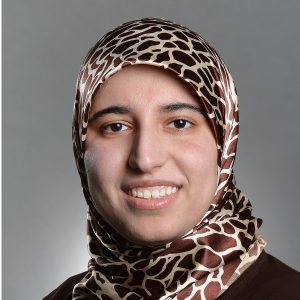
April 29, 2021
Bioinformatics Research and Collaboration in the Era of Big Data and Precision Medicine
As we have entered the precision medicine and big data science era, there are many unmet challenges on identifying the disease related information from large, heterogeneous data, and translating the findings for clinical use. Among these challenges, one is how to effectively identify driver mutations and genes in cancer genomes, especially those with the potential for druggable targets for the development of molecularly targeted cancer therapies. In this talk, I will first review the computational methods and tools for detecting cancer driver genes and mutations from cancer big data. Then, I will present our informatics approaches for identifying cancer mutations…

April 29, 2021
Detection of changes in allelic frequencies due to selection on complex traits in the genomes of pigs from four genetic lines using generation proxy selection mapping
Most economically relevant traits in pig breeding programs are controlled by numerous causal variants spread across the genome and undergo selection pressure to improve the genetic merit of commercial pigs. As a result, small changes in allele frequency over relatively short time scales are induced at these loci. Identification of genomic loci that exhibit directional changes in allele frequency due to artificial selection identifies areas of the genome that can aid in genetic improvement of populations of pigs. Thus, the objective of this research was to use Generation Proxy Selection Mapping (GPSM) of the dependent variable birth date to detect…

April 12, 2021
CANCER PRIORITY BY RACE
Cancer is one of the most common and deadly diseases and its incidence is increasing. There are over one hundred types of cancer and they have a varied impact on society and the individuals affected. Racial disparities play a role in the outcome of many diseases. How does race impact the types of cancer that should be prioritized? How does incidence rate, death rate, and stage at diagnosis vary by race/ethnicity? Could cancer rates be improved by considering race/ethnicity? Please contact Robert Sanders (sandersrl@missouri.edu) for Zoom information.

April 12, 2021
De-novo SuperTranscriptome assembly from the nodal root growth zone of maize inbred line FR697
Certain cultivars of maize show increased resistance to water deficit conditions by maintenance of root growth. To better understand the molecular mechanisms related to this adaption, nodal root growth zone samples were collected from the reference inbred line B73 and inbred line FR697, which exhibits a relatively greater ability to maintain root elongation under water deficits. Plants were grown under various water stress levels in both field and controlled environment settings. FR697-specific RNA-Seq datasets were generated and used for a de-novo transcriptome assembly to characterize any genotype-specific genetic features. The assembly was aided by an Iso-Seq library of transcripts generated…

March 23, 2021
Design and Evaluation of a Longitudinal Method to Measure Physician Burnout in the Clinical Workflow
Burnout, a condition characterized by emotional exhaustion, listlessness, and an inability to cope, is demonstrably more prevalent among healthcare providers than other occupations. Burnout is fundamentally a longitudinal problem, but traditional instruments for measurement such as the Maslach Burnout Inventory (MBI) and the Professional Fulfillment Index (PFI) are time-consuming, expensive, and complex to administer, making it prohibitive to collect repeated measures to capture burnout feedback with weekly, monthly or even yearly frequency. A Single-Item Burnout Measure (SIBM) has been previously validated to highly correlate to the emotional exhaustion dimension of the MBI, and thus can serve as a proxy measure…

March 23, 2021
Analysis and Dissemination of School-based Immunization Data to Improve Public Health Outcomes in Missouri
In Missouri, immunization is required for both public and private school students against common vaccine-preventable diseases (VPDs) including polio, pertussis, varicella, measles, mumps, and rubella; however, parents may forego vaccination for their child by claiming medical or religious exemptions. Like many states across the US, Missouri is experiencing increasing vaccine exemption rates. However, health officials lack adequate and reliable means of accessing local vaccination data to inform health priorities and interventions. A partnership between the University of Missouri and the Missouri Department of Health and Human Services (DHSS) was formed to 1) better understand temporal and geographic variation in vaccine…

March 18, 2021
Computational Subgroups Stratification and Precision Drug Repositioning Using Explainable Artificial Intelligence
Enabling precision medicine requires developing robust patient stratification methods and identifying drugs tailored to homogeneous subgroups of patients from a heterogeneous population. Once discovering these subgroups, we can align patients and medications more specifically to achieve precision-based therapy. Developing de novo drugs is expensive and time-consuming with an ultimately low FDA approval rate. These limitations make developing new drugs for a small portion of a disease population unfeasible. Therefore, drug repositioning (DR) is an essential alternative for developing new drugs for a disease subpopulation. DR reduces the time, cost, and risk associated with a new drug. It is essential to develop data-driven approaches…

March 17, 2021
Virtual Campus Visit with NSF CISE AD Dr. Margaret Martonosi
The National Science Foundation (NSF) supports a majority of US academic research in the Computer and Information Science and Engineering (CISE) topic areas. Since February, 2020, Dr. Margaret Martonosi serves as NSF CISE AD, stewarding the CISE directorate’s $1B annual budget on behalf of research, education, workforce and infrastructure funding in CISE topic areas and for science as a whole. Martonosi is conducting a series of “virtual campus visits” to engage in conversation about a vision for CISE research going forward, and to field Q&A from the CISE community. Please join us for this highly-interactive session and please bring your input and questions! BioMargaret Martonosi is the US…

March 11, 2021
Dissertation Defense – Utilizing Blockchain Technology for Clinical Trial Optimization
Clinical trials are the cornerstone of treatment discovery because they provide comprehensive scientific evidence on the safety, efficacy, and optimal use of therapeutics. However, current clinical trials are facing multiple challenges such as patient recruitment, data capture, and overall management. There are various causes of patient recruitment challenges such as inefficient advertising models, complex protocols, and distant trial sites. Data inconsistency is the main challenge of the data capture process. Source data verification, a standard method used for data monitoring, is resource-intensive that can cost up to 25% of the total budget. The current clinical trial management system market is…